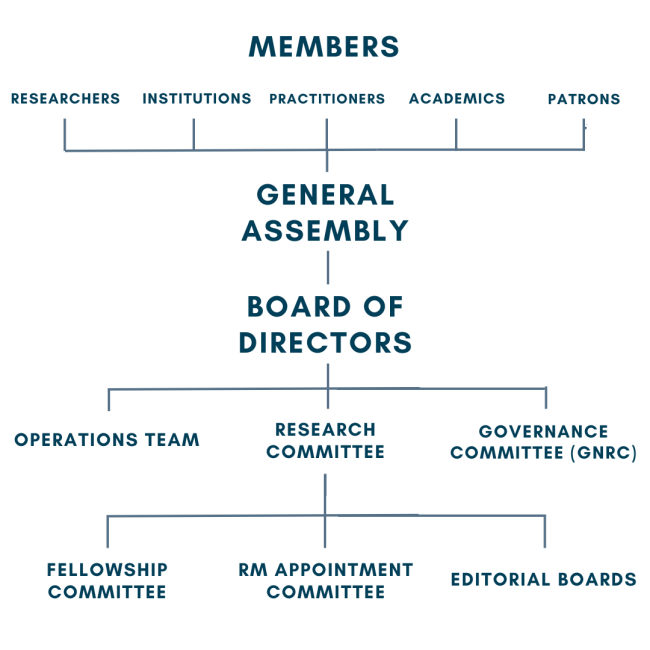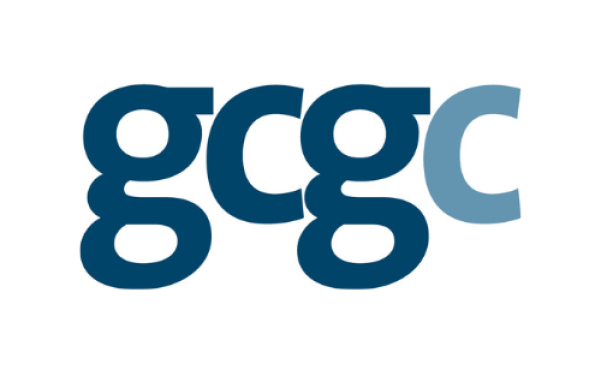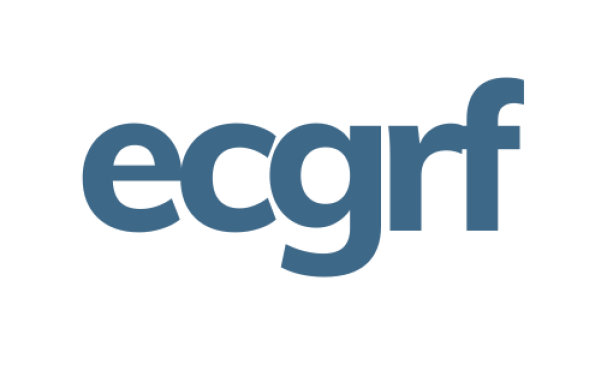ECGI Articles (English)
THE EUROPEAN CORPORATE GOVERNANCE INSTITUTE, IN ABBREVIATION "ECGI"
ARTICLES AS MODIFIED BY THE EXTRAORDINARY GENERAL MEETING OF 16 June 2020
UNOFFICIAL TRANSLATION OF THE FRENCH ORIGINAL
Chapter I - Name, registered office, purpose and term
Article 1 - Name
1.1 The name of the Association shall be EUROPEAN CORPORATE GOVERNANCE INSTITUTE, or in abbreviation "ECGI", hereinafter referred to as "the Institute".
1.2 The Institute is an international non-profit association, which is governed in accordance with the relevant provisions of the Belgian Code of Companies and Associations (Belgian Wetboek van vennoostchappen en verenigingen / Code des sociétés et associations).
Article 2 - Registered office
2.1 The Institute has its registered office in the Brussels Region. The registered office may be transferred to any other location in Belgium in compliance with the applicable legislation on languages, by a decision taken by simple majority of the Board of Directors, published in the Annexes au Moniteur belge.
2.2 The Institute may also open other administrative and operational offices, both in Belgium and abroad, by a decision taken by a simple majority of the Board of Directors.
Article 3 - Purpose
3.1 The mission of the Institute is to improve corporate governance and stewardship through independent scientific research and related activities. It is to assist the top academics in the field of corporate governance in bringing their research to the attention of leading practitioners, policymakers and thought leaders by making state of the art knowledge accessible and relevant to them. It is to make high quality research accessible for the public good.
3.2 To achieve this purpose the Institute is to:
• Bring together leading academics working on corporate governance around the world and promote interaction between academics from different disciplines, such as economics, law, finance, management and behavioural sciences.
• Encourage constructive dialogue between academics, legislators and practitioners and seek to promote debate on major corporate governance issues.
• Undertake, commission and disseminate evidence-based research on corporate governance and stewardship.
• Provide a platform for people to interact, learn, and exchange ideas relating to corporate governance and stewardship.
• Act as a non-partisan bridge between geographic and industry communities towards the development of best practice based on impartial and objective research and collective know-how.
• Undertake any other activity that will improve the understanding and exercise of corporate governance.
3.3 The Institute will seek to achieve its aims for example by:
• Disseminating research results and other relevant material through the Institute's website.
• Providing an extensive library of resources, including corporate governance codes, stewardship codes, research papers, articles, videos, reports and other useful materials.
• Periodically inviting distinguished academics to hold public lectures.
• Arranging international academic conferences.
• Supporting research-member initiated proposals that promote cross-institutional collaborative research.
• Supporting policy driven research that addresses international policy issues.
• Arranging corporate engagement events that convene business leaders and academics.
• Arranging policy engagement activities that convene policy makers, business leaders and academics.
3.4 The Institute has the right to exercise, in Belgium or abroad, alone or in collaboration with third parties, directly or indirectly, all activities related, directly or indirectly, to its purpose.
Article 4 - Term
4.1. The Institute is formed for an unlimited term.
Article 5 - Structure
5.1. The organs of the Institute are: • the General Assembly;
• the Board of Directors (hereinafter the “Board”);
• the Appointee(s) entrusted with daily management.
Chapter II - Members of the Institute
Article 6 – Members
6.1 The Institute is an association formed by the natural persons and legal entities, validly represented, having signed the original Articles of Association.
6.2 Membership categories are Academic Member, Academic Institutional Member, Institutional Member, Practitioner Member, Patron Member and Research Member.
6.3 Academic Members are individuals who hold at least a 70% position with an academic institution or otherwise mostly pursue an academic activity.
6.4 Academic Institutional Members are legal entities concerned with the production of academic research and education of corporate governance programmes, for example universities and business schools.
6.5 Institutional Members are legal entities concerned with corporate governance, for example stock exchanges, regulators, investors, companies, ratings agencies, stock price index producers and law and audit firms.
6.6 Practitioner Members are individuals who otherwise take an active interest in corporate governance issues.
6.7. Patron Members are legal entities or individuals interested in corporate governance and are Patrons of the European Corporate Governance Research Foundations (ECGRF). They are appointed in agreement with the boards of ECGI and ECGRF.
6.8 Research Members are individuals who have been appointed as such by the Institute, for the duration of their appointment.
6.9 The Institute may, on the recommendation of its duly appointed Research Member Committee, bestow the honorific title of Fellow of the ECGI on individuals qualifying as Research Members considered by the Institute’s existing Fellows to have made outstanding contributions to corporate governance research, and exceptionally on other individuals who do not qualify for Research Membership but are deemed to have made outstanding contributions to the cause of corporate governance research. This title may be publicly cited by its holder but confers no other rights.
Article 7 - Application for Membership
7.1 Academic, academic institutional, institutional, practitioner or research membership must be applied for through the Institute's web-site, by e-mail or letter. Research members may also be nominated by existing Research Members.
7.2 Applicants and nominees must commit to abide by the Articles of Association and the Internal Rules.
7.3 Applicants and nominees must furnish, upon request and under clearly defined conditions of confidentiality, sufficient information to verify the membership class. Academic Members commit to notify the Institute immediately when the pre-conditions for academic membership cease to apply.
7.4 A duly constituted Membership Committee admits new academic, institutional or practitioner Members. In the event of rejection, the applicant may request re-consideration of the application by the Board, the decision of which is final and requires no justification.
7.5 A duly constituted Research Member Appointment Committee admits new Research Members subject to ratification by the Board, the decision of which is final and requires no justification.
Article 8 - End of Membership
8.1 The membership of any Member of the Association, or fellowship, shall terminate:
• upon death, incapacity or insolvency of an individual;
• upon voluntary or forced dissolution, or liquidation of a legal entity or association;
• by resignation;
• upon suspension or expulsion;
• when the conditions for entry into a given class of membership are no longer met.
8.2 Members or Fellows may resign from the Institute by notifying the Board in writing. The resignation will take effect on receipt of the notification by the Institute.
8.3 A Member or Fellow deemed to cause damage to the interests of the Institute may be suspended or expelled by the Board. The Member or Fellow will be notified of the suspension or the expulsion. The Member or Fellow concerned shall in any case have the right to present its defence beforehand. In case of expulsion, it shall also have a right of appeal before the General Assembly. A suspended Member shall not be entitled to vote, to attend meetings of the Institute, or otherwise to participate in the activities of the Institute during the suspension period.
8.4 No Member who has resigned or has been expelled, nor its beneficiaries or creditors will have any right to the assets of the Institute, nor to any reimbursement of the membership fees or donations. Such Member will remain liable for all dues for the current financial year and any other commitments the Member may have towards the Institute or ECGRF, in which case such debt shall immediately become due and payable.
Article 9 - Membership fees
9.1 Members shall pay membership fees to the Institute set by the General Assembly, which may vary by membership class. The Board determines the terms and form of payment.
9.2 Membership is only effective upon receipt of the membership fee.
9.3 In the event of resignation or exclusion of a member the fee is not reimbursable.
Chapter III - General Assembly
Article 10 - Composition and Powers
10.1 The General Assembly shall consist of all the Members of the Institute. All Members have one vote.
10.2 The General Assembly shall have all the powers conferred upon it by these Articles, namely:
• the modification of these Articles of Association;
• the decision to dissolve the Institute;
• the election and removal of the directors;
• the approval of the Institute's budgets, accounts and annual report;
• the designation and removal of the external auditor.
10.3 Each Member shall have the right, by means of a letter sent by regular mail or any other medium of written or electronic communication that reasonably permits the identification of the sender, to be represented at the General Assembly by a proxy-holder, who must be a Member of the same class. A proxy-holder shall never represent more than two other Members. If a General Assembly must be held by notarial deed, each Member shall have the right to be represented at such General Assembly by a proxy-holder, whether a member or not.
Article 11 - Ordinary and Extraordinary Meetings of the General Assembly
11.1 The General Assembly meets, at least once a year upon an invitation specifying the place, date and agenda sent by the Chair of the Board, or his/her deputy at least 15 calendar days in advance. The general assembly will in particular
• receive the report on the activities of the Institute during the past year;
• approve the accounts for the past year and approve the budget, the membership fees and the admission fees for the following year;
• release the directors and the auditor with regard to their tasks.
11.2 An extraordinary General Assembly shall be called by the Board whenever required by the interests of the Institute or upon request of at least one fifth of the Members. Save in an emergency, notice of meetings shall be served at least 15 calendar days in advance.
Only an extraordinary meeting may:
• modify the Articles of Association in accordance with Article 20;
• decide the dissolution of the Institute in accordance with Article 21.
11.3 The General Assembly shall be presided over by the Chair of the Board or, in the absence of the Chair, by the Vice-Chair, failing which by a director designated by his/her colleagues.
11.4 To the extent it is expressly mentioned in the convening notice, a Member may participate in the General Assembly by means of telephone conference, video conference or similar communication equipment enabling him/her/it to participate directly, simultaneously and uninterruptedly in the discussions during the General Assembly and to exercise his/her/its right to vote in connection with all the items on the agenda. Such participation in a meeting shall constitute presence in person at the meeting.
11.5 The minutes of the General assembly shall be signed by the person presiding over the Assembly and kept in a separate file at the Institute's registered office by an appointee entrusted with daily management, at the disposal of the Members.
Chapter IV - Board, Committees, Appointee(s) entrusted with daily management, External Auditor
Article 12 - Board
12.1 The Board has a minimum of 3 and a maximum of 11 directors. A majority of directors are nominated and elected among persons qualifying for research membership of the Institute. Such directors are deemed to resign when the pre-conditions for research membership no longer apply.
12.2 In case of a vacancy, the Board has the power to provide for an interim director pending a decision by the next General Assembly.
12.3 The General Assembly may decide to remove a director. Such decision requires a two-thirds majority of the votes of the Members present or represented.
12.4 The Board elects a Chair amongst the directors that do not qualify for academic or research membership of the Institute and a Vice-Chair who qualifies for academic or research membership, or vice versa.
12.5 The Chair, the Vice-Chair or two Directors convene meetings of the Board. Save in an emergency, notice of meetings shall be served at least 15 calendar days in advance.
12.6 Board meetings may be held both physically and by online telecommunication. If a board meeting is held by online telecommunications, directors shall have received timely information enabling them to express a fully considered opinion on the items on the agenda. Items voted on during an online telecommunications meeting shall be recalled and confirmed at the next following physical meeting. Nevertheless, absence of such confirmation shall not invalidate the decisions taken.
12.7 The maximum term of the office for Directors shall be 3 years. Directors may be re-elected.
12.8 The minutes of the Board shall be signed by the Chair and kept in a separate file at the Institute's registered office by an appointee entrusted with daily management, at the disposal of the Board members.
12.9 Every director shall declare potential conflicts of interest to the Chair or the Vice- Chair at the time he/she is approached to fulfil that function, and thereafter if new conflicts arise. In case a conflict is declared, the Chair or Vice-Chair, assisted by two other Directors designated ad hoc by the Board, shall decide what measures, if any, are necessary to avoid undesirable consequences of such conflict. They shall inform the whole Board without delay of the existence and nature of the conflict and of any measures taken in consequence.
Article 13 - Powers of the Board
13.1 The Board shall have all powers necessary to pursue the objectives of the Association, and to effect and complete all management, administration and disposal acts, with the exception of the powers reserved by law or by these Articles to the General Assembly.
Article 14 - Representation of the Institute
14.1 Without prejudice to the Board’s powers to delegate daily management, the acts binding the Institute with regard to third parties are validly signed by the Chair, acting individually, the Vice-Chair, acting individually, or by two directors, acting jointly, or by a holder of special powers of attorney. Legal proceedings, either as plaintiff or defendant, are conducted by the Board represented by the Chair or by any person the Board has designated to that effect.
Article 15 – Committees
15.1 The Board shall appoint a Membership Committee and a Research Member Committee. It may appoint such other committees that it deems useful for the proper governance of the Institute, such as a Management Committee.
15.2 The Board determines the terms of reference and powers of the committees it appoints. Committees report to the Board on their activities.
Article 16 - Delegation of daily management
16.1 The Board may under its responsibility delegate the day-to-day management of the affairs of the Institute in whole or in part to one or more appointees who may or not be Board members.
16.2 The Board shall define the appointees’ respective titles, powers and remunerations.
16.3 For the scientific part of the Institute’s affairs, the relevant appointee shall qualify for academic or research membership of the Institute.
16.4 The maximum term of the office of an appointee that includes scientific affairs shall be 3 years. Such appointment may be renewed.
Article 17 - External Auditor
17.1 The General Assembly appoints an external auditor or a “vérificateur aux comptes” in accordance with Belgian legislation.
17.2 The mandate of the external auditor may not exceed three years. It may be renewed. The General Assembly determines the fee to be paid to the external auditor.
Chapter V - Budget and Accounts
Article 18 - Budget and Accounts
18.1 On 31 December of every year and for the first time on 31 December 2002, the books and accounts of the Institute shall be closed and the Board shall establish the accounts of the Institute for submission to the annual General Assembly, together with the budget for the year during which the assembly is held.
18.2 The accounts of the Institute shall be audited by the external auditor or a qualified “vérificateur aux comptes”.
18.3 The Institute shall be funded by
• membership fees;
• specific contributions, provided these are given with the understanding that they will in no way influence the independence of the Institute and/or its organs;
• revenues from Institute activities, for example royalties from books and publications;
• overheads from funded or subsidised activities;
• grants, sponsorships and donations from interested organisations.
Chapter VI - Decisions
Article 19 - Ordinary Decisions
19.1 Except for any provisions to the contrary mentioned in the Articles of Association, resolutions approved by the General Assembly shall be validly adopted if they obtain the affirmative vote of the majority of the Members present and represented. Except in the cases foreseen in articles 20 and 21 of these Articles of Association, the General Assembly may validly deliberate and vote, whatever the number of Members present or represented. Each Member has one vote. In case of a tie, the chairperson of the assembly has the casting vote. Abstentions are not counted. No decision may be taken on an item which does not appear on the agenda accompanying the notice of a meeting, save for an item included by a unanimous resolution of Members present and represented.
19.2 The Board may only validly decide and adjudicate if at least half of its members are presented or represented. Decisions of the Board are taken by a simple majority of the Directors' votes cast. Each Director has one vote. Another Director may represent a Director who is unable to attend the meeting. A Director may not, however, represent more than two other Directors. In case of a tie, the chairperson of the meeting has the casting vote. Abstentions are not counted.
19.3 The Board may take decisions by written resolution. For such to be valid, all Board members must be notified by post or e-mail, and adequate explanation must be given regarding the rationale of the resolution proposed. The decision may only be considered effective when positive approval of at least one half of the Board has been received by post or e-mail.
19.4 Decisions of the General Assembly and/or the Board are binding on all the Members of the Institute.
Article 20 - Amendments to the Articles of Association
20.1 The General Assembly shall validly deliberate on amendments to the Articles of Association only if the object of such amendments is mentioned explicitly in the call to meeting and if two thirds of the total number of members and two thirds of the Research Members as a group are present or represented at the assembly. Any amendment shall require a two-thirds majority of the votes, including a two-thirds majority of the Research Members present or represented when counted as a group. Abstentions are not counted.
20.2 If less than two thirds of the total number of members or less than two thirds of the Research Members are present or represented at the first assembly, the Board shall have the right to call a second assembly within three weeks of the date of the first assembly, which shall validly deliberate whatever the number of Research Members present or represented.
20.3 Amendments to article 3 (Purpose) of these Articles shall be effective only after approval by Royal Decree.
Article 21 - Dissolution
21.1 The Institute may only be dissolved by a decision of the General Assembly where more than three-quarters of the Members present vote in favour, including a three-quarters majority of the Research Members present as a group, and inasmuch as two thirds of the total number of members and two thirds of the Research Members as a group are present or represented at the assembly.
21.2 If at a first assembly less than two thirds of the total number of members or less than two thirds of the Research Members are present or represented as a group, then the Board may convene a second assembly within three weeks of the first which shall validly deliberate whatever the number of Members present or represented.
21.3 If the Institute is dissolved, the assembly shall appoint a liquidator and determine its powers.
21.4 The General Assembly decides on the distribution of the net assets, if any, to academic and/or charitable institutions whose aims are as close as possible to those of the Institute.
Chapter VII Sundry Provisions
Article 22 - Internal Rules
The General Assembly, on the recommendation of the Board, may adopt one or more Internal Rules compatible with the provisions of these Articles of Association so as to ensure smooth running and administration of the Institute. They are binding on all Members, provided that at least two-thirds of the votes cast are in favour. Abstentions are not counted.
Article 23 - Application of legal provisions
Any matters which are not covered by the present Articles of Association will be governed by the relevant provisions of the Belgian Code of Companies and Associations.
Article 24 - Authentic language version
In case of dispute, the French version of these documents is the authentic text.

Quick links
The Global Corporate Governance Colloquia (GCGC)
GCGC is a partnership of 12 leading universities from Asia, Europe and the US which convenes annually with papers and participants from the fields of law and finance. ECGI is responsible for the general operation of GCGC and organisation of the annual conference.
The European Corporate Governance Research Foundation (ECGRF)
ECGRF is a charitable foundation which was established to provide long-term support for ECGI. ECGI reports annually to the Trustees of the Foundation and manages its general operations.







